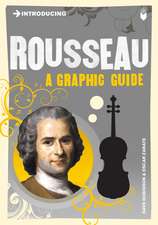Leibniz’s Metaphysics and Adoption of Substantial Forms: Between Continuity and Transformation: The New Synthese Historical Library, cartea 74
Editat de Adrian Nitaen Limba Engleză Hardback – 10 iul 2015
Between the end of his sejour at Paris (November 1676) and the first part of the Hanover period, Leibniz reformed his dynamics and began to use the theory of corporeal substance. This book explores a very important part of the philosophical work of the young Leibniz.
Expertise from around the globe is collated here, including Daniel Garber’s work based on the recent publication of Leibniz's correspondence from the late 1690s, examining how the theory of monads developed during these crucial years. Richard Arthur argues that the introduction of substantial forms, reinterpreted as enduring primitive forces of action in each corporeal substance, allows Leibniz to found the reality of the phenomena of motion in force and thus avoid reducing motion to a mere appearance.
Amongst other themes covered in this book, Pauline Phemister’s paper investigates Leibniz’s views on animals and plants, highlighting changes, modifications and elaborations over time of Leibniz’s views and supporting arguments and paying particular attention to his claim that the future is already contained in the seeds of living things. The editor, Adrian Nita, contributes a paper on the continuity or discontinuity of Leibniz’s work on the question of the unity and identity of substance from the perspective of the relation with soul (anima) and mind (mens).
| Toate formatele și edițiile | Preț | Express |
|---|---|---|
| Paperback (1) | 381.98 lei 6-8 săpt. | |
| SPRINGER NETHERLANDS – 23 oct 2016 | 381.98 lei 6-8 săpt. | |
| Hardback (1) | 389.31 lei 6-8 săpt. | |
| SPRINGER NETHERLANDS – 10 iul 2015 | 389.31 lei 6-8 săpt. |
Din seria The New Synthese Historical Library
- 18%
 Preț: 950.52 lei
Preț: 950.52 lei - 18%
 Preț: 949.73 lei
Preț: 949.73 lei - 18%
 Preț: 946.24 lei
Preț: 946.24 lei - 18%
 Preț: 953.82 lei
Preț: 953.82 lei - 20%
 Preț: 1618.07 lei
Preț: 1618.07 lei - 15%
 Preț: 643.00 lei
Preț: 643.00 lei - 18%
 Preț: 955.56 lei
Preț: 955.56 lei - 15%
 Preț: 644.82 lei
Preț: 644.82 lei - 18%
 Preț: 1387.55 lei
Preț: 1387.55 lei - 18%
 Preț: 955.56 lei
Preț: 955.56 lei - 18%
 Preț: 951.47 lei
Preț: 951.47 lei - 15%
 Preț: 637.46 lei
Preț: 637.46 lei - 15%
 Preț: 644.63 lei
Preț: 644.63 lei - 18%
 Preț: 947.32 lei
Preț: 947.32 lei - 15%
 Preț: 644.49 lei
Preț: 644.49 lei - 15%
 Preț: 645.47 lei
Preț: 645.47 lei - 18%
 Preț: 953.82 lei
Preț: 953.82 lei - 18%
 Preț: 958.38 lei
Preț: 958.38 lei - 15%
 Preț: 639.25 lei
Preț: 639.25 lei - 15%
 Preț: 638.89 lei
Preț: 638.89 lei - 18%
 Preț: 953.65 lei
Preț: 953.65 lei - 18%
 Preț: 952.26 lei
Preț: 952.26 lei - 18%
 Preț: 950.52 lei
Preț: 950.52 lei - 18%
 Preț: 1225.28 lei
Preț: 1225.28 lei - 15%
 Preț: 646.11 lei
Preț: 646.11 lei
Preț: 389.31 lei
Nou
Puncte Express: 584
Preț estimativ în valută:
74.49€ • 81.17$ • 62.77£
74.49€ • 81.17$ • 62.77£
Carte tipărită la comandă
Livrare economică 23 aprilie-07 mai
Preluare comenzi: 021 569.72.76
Specificații
ISBN-13: 9789401799553
ISBN-10: 9401799555
Pagini: 176
Ilustrații: XII, 176 p.
Dimensiuni: 155 x 235 x 17 mm
Greutate: 0.45 kg
Ediția:2015
Editura: SPRINGER NETHERLANDS
Colecția Springer
Seria The New Synthese Historical Library
Locul publicării:Dordrecht, Netherlands
ISBN-10: 9401799555
Pagini: 176
Ilustrații: XII, 176 p.
Dimensiuni: 155 x 235 x 17 mm
Greutate: 0.45 kg
Ediția:2015
Editura: SPRINGER NETHERLANDS
Colecția Springer
Seria The New Synthese Historical Library
Locul publicării:Dordrecht, Netherlands
Public țintă
ResearchCuprins
Acknowledgement.- Chapter 1. Introduction Leibniz`s metaphysics and adoption of substantial forms; Adrian Nita.- Chapter 2. The Individual in Leibniz’s Philosophy, 1663-1686; Lucio Mare and Roger Ariew.- Chapter 3. Substance, unity and identity in early Leibniz's work; Adrian Nita.- Chapter 4. Hylomorphism without Matter? Transtemporal Sameness and the Rehabilitation of Substantial Forms in Leibniz’s Theory of Substance; Stefano Di Bella.- Chapter 5. Essential differences. Or an exercise in symptomatic history of philosophy; Enrico Pasini.- Chapter 6. Affects and Activity in Leibniz’s De affectibus; Markku Roinila.- Chapter 7. Presumption and Leibniz's Metaphysics of Action, 1678-1680; Andreas Blank.- Chapter 8. Corporeal Substances as Monadic Composites in Leibniz’s Later Philosophy; Paul Lodge.- Chapter 9. The Souls of Seeds Pauline Phemister.- Chapter 10. The Relativity of Motion as a Motivation for Leibnizian Substantial Forms; Richard Arthur.- Chapter 11. Monads on my Mind; Daniel Garber.
Notă biografică
Adrian Nita is Professor of Philosophy at University of Craiova (Romania) and managing editor of the Revue roumaine de philosophie. He is the author of La métaphysique du temps chez Leibniz et Kant (L’Harmattan, Paris, 2008).
Textul de pe ultima copertă
This anthology is about the signal change in Leibniz’s metaphysics with his explicit adoption of substantial forms in 1678-79. This change can either be seen as a moment of discontinuity with his metaphysics of maturity or as a moment of continuity, such as a passage to the metaphysics from his last years.
Between the end of his sejour at Paris (November 1676) and the first part of the Hanover period, Leibniz reformed his dynamics and began to use the theory of corporeal substance. This book explores a very important part of the philosophical work of the young Leibniz.
Expertise from around the globe is collated here, including Daniel Garber’s work based on the recent publication of Leibniz's correspondence from the late 1690s, examining how the theory of monads developed during these crucial years. Richard Arthur argues that the introduction of substantial forms, reinterpreted as enduring primitive forces of action in each corporeal substance, allows Leibniz to found the reality of the phenomena of motion in force, and thus avoid reducing motion to a mere appearance.
Amongst other themes covered in this book, Pauline Phemister’s paper investigates Leibniz’s views on animals and plants, highlighting changes, modifications and elaborations over time of Leibniz’s views and supporting arguments and paying particular attention to his claim that the future is already contained in the seeds of living things. The editor, Adrian Nita, contributes a paper on the continuity or discontinuity of Leibniz’s work on the question of the unity and identity of substance from the perspective of the relation with soul (anima) and mind (mens).
Between the end of his sejour at Paris (November 1676) and the first part of the Hanover period, Leibniz reformed his dynamics and began to use the theory of corporeal substance. This book explores a very important part of the philosophical work of the young Leibniz.
Expertise from around the globe is collated here, including Daniel Garber’s work based on the recent publication of Leibniz's correspondence from the late 1690s, examining how the theory of monads developed during these crucial years. Richard Arthur argues that the introduction of substantial forms, reinterpreted as enduring primitive forces of action in each corporeal substance, allows Leibniz to found the reality of the phenomena of motion in force, and thus avoid reducing motion to a mere appearance.
Amongst other themes covered in this book, Pauline Phemister’s paper investigates Leibniz’s views on animals and plants, highlighting changes, modifications and elaborations over time of Leibniz’s views and supporting arguments and paying particular attention to his claim that the future is already contained in the seeds of living things. The editor, Adrian Nita, contributes a paper on the continuity or discontinuity of Leibniz’s work on the question of the unity and identity of substance from the perspective of the relation with soul (anima) and mind (mens).
Caracteristici
Provides a unique focus on one particularly significant moment in Leibniz's work Highlights the relevance of Leibniz's work in the life sciences for his developing metaphysics Brings together in one volume cutting-edge research by scholars from around the world Includes supplementary material: sn.pub/extras

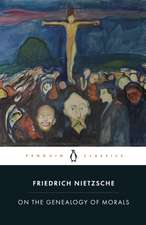


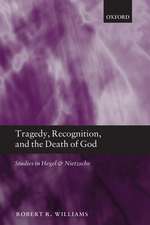

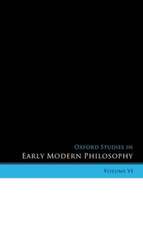

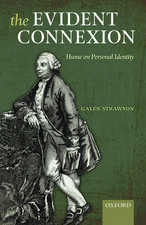

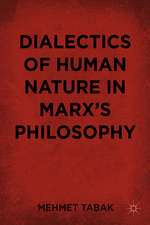
![British Empirical Philosophers (Routledge Revivals): Locke, Berkeley, Hume, Reid and J. S. Mill. [An anthology]](https://i4.books-express.ro/bt/9780415537742/british-empirical-philosophers-routledge-revivals.jpg)


